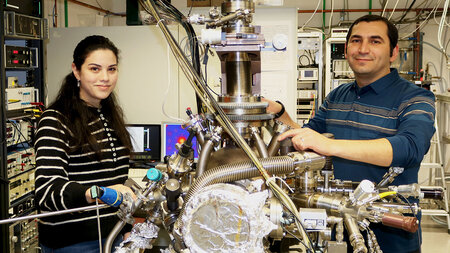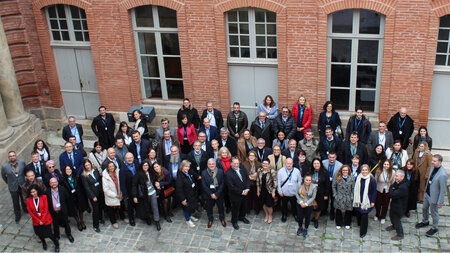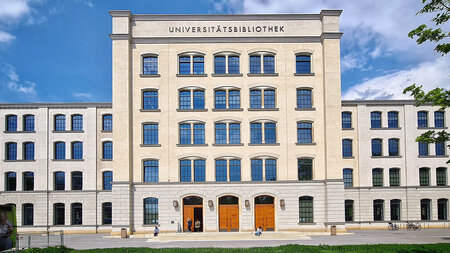"UniPaRadieschen" Is Looking for Gardening Enthusiasts
Gardening on campus: Everyone can participate in the project of the Department for Sustainability (Natuc) of the Student_innenrat (Student Council) - from newcomers to gardening pros.
How does the cultivation and harvesting of different types of vegetables, fruits and grains work? What do the herbs look like that we can only buy in the supermarket in powder form? When is a vegetable variety ripe for harvesting? And when are which varieties in season? These are all questions that gardening enthusiasts on the campus of Chemnitz University of Technology can answer themselves or in a team at the "UniPaRadieschen" in front of the Vettersstraße 52 dormitory. Since 2012, various useful trees and berry bushes, such as sour cherry, walnut, gooseberry, currant, aronia berry and raspberry, have been grown in this area, together with a variety of rare vegetables and herbs that cannot be found in any supermarket. Among them are yellow strawberries and raspberries, Inca cucumber, the Green Zebra tomato or the Green in the Snow Asian lettuce, which lives up to its name.
In addition to cultivation along the lines of permaculture, as a model for sustainable and ecological agriculture, the "UniPaRadieschen" project also focuses on nature and plant science, the necessary conditions for growing and caring for plant species, and the community itself. All in all, the Unigarden is a place where students can implement their own projects and ideas within the context of sustainability. Anyone can take part in gardening - from newcomers to gardening professionals. Knowledge or previous experience is not necessary.
"Traditionally, the Unigarden is a community garden. Most of the time we meet once a week on a mutually agreed date, or more often if there is a lot of harvesting or watering to do in the summer," reports Tobias Vogel from the Department for Sustainability (Natuc) of the Student_innenrat der TU Chemnitz (Chemnitz University of Technology Student Council), where the organizational threads come together. "In the coming gardening season, we would also like to provide beds on demand that interested parties can rent free of charge in order to use them for a season independently of the community garden," says Vogel. In addition to the usual activities, construction projects, such as building additional seating, are also planned for the coming semester, he said. Here, too, the UniPaRadieschen team could use active support.
The tasks that arise in the community garden are divided among the actors on site, depending on their knowledge and preferences. Depending on the season, typical activities include sowing and planting, watering, weeding, and pruning trees and shrubs. "The meadow also has to be kept in check - an elegant tool for this is the scythe, for which one or two have already developed an enthusiasm," laughs Vogel. Most important and popular, he says, is harvesting. "The harvest yields are divided up among the team, and surpluses are given away," says Vogel.
The Unigarden is supported by the Studentenwerk Chemnitz-Zwickau. Anyone who would like to join in can write to oekologie@stura.tu-chemnitz.de or get in touch on the Natuc's Instagram account: @natuchemnitz. The next garden meeting is on April 8, 2022 at 3 pm and is also intended as an information event.
(Article: Mario Steinebach / Translation: Chelsea Burris)
Matthias Fejes
30.03.2022






